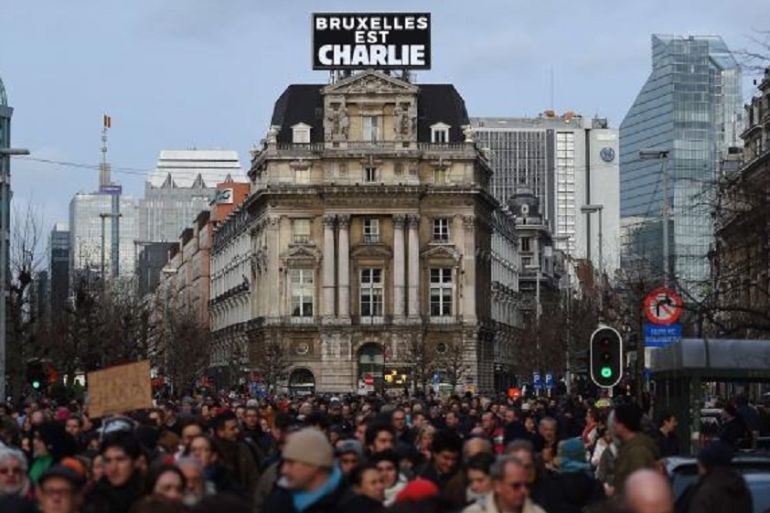Covering the Charlie Hebdo story
Internal debate on how to report the news of the Paris attacks underpins the integrity of the information we provide.

Many of you will have seen some press coverage in the past 24 hours about an exchange of emails between some of our own staff about the attack on the French satirical newspaper Charlie Hebdo.
Our responsibility as journalists is very clear, and very visible, in our output: to strive to understand what is going on to challenge all relevant sides of any story to challenge preconceptions but never, ever, to take a side or have an opinion in our journalism.
Our job is to challenge the opinions of those we are covering through our interviews and through the angles we explore in our coverage.
With this terrible story, and so many others, there are different opinions, and with Charlie Hebdo there is rightfully a great deal of passion and emotion.
Our job is to cover every twist and turn of the story.
To ask the hard questions about why this happened, and where the dynamic of the story may go next.
To explain the story clearly and comprehensively to our audiences in all corners of the globe.
To connect with the people involved, so the humanity behind the events can be seen.
But, above all, our job is to cover the story with responsibility and integrity.
Trust and integrity
This applies to every story we do, no matter where it is, what the subject matter is, or who it is about.
We have a responsibility as an information provider and we carry this responsibility with great care.
That’s why our reputation is built on trust and integrity. We have done this since Day One, and we we will continue to uphold these values.
There is more internal debate in Al Jazeera English than any other company I’ve worked for.
That is a good thing, and a foundation for our journalism.
The debate on how to cover stories underpins the integrity of the information we provide, so it is a positive and healthy part of what we do.
We have brilliant journalists in every corner of the globe working for AJE, making us the most diverse team of any news broadcaster in the world.
That’s a great strength, and leads to discussion and debate on stories that take in many different opinions and viewpoints.
But the debate should always be focused on how we can improve our output and the hight-quality journalism we carry out every second of every day.
Like most other broadcasters and newspapers worldwide, we didn’t air the cartoons for which Charlie Hebdo is so well known.
A different mandate
As a journalistic organisation we have the right to publish those cartoons, but we also have the right not to.
As a satirical magazine, Charlie Hebdo‘s mandate is different to ours.
Any red lines regarding freedom of expression have been discussed on air in recent days, and will continue to be an important topic deserving debate into the future.
However, we stand in solidarity with journalists worldwide and deplore the deaths that have resulted from this terrible attack.
Throughout the past days, our output on TV and all digital platforms has been exemplary.
As the manhunt, ensuing sieges and Sunday’s marches in Paris unfolded, we covered the events with clarity – and comprehensively.
We provided background and context so our viewers understood the issues behind the live coverage.
We rightfully have given the story the prominence it deserves, with live coverage and analysis of events in France and reaction elsewhere since the attacks happened.
And, above all, we have done so with integrity.